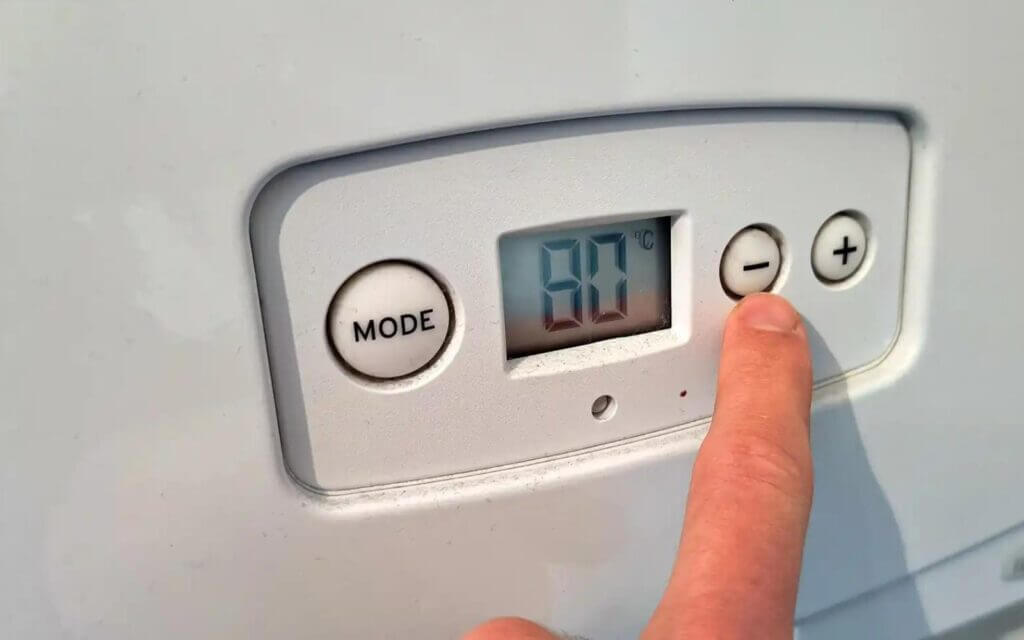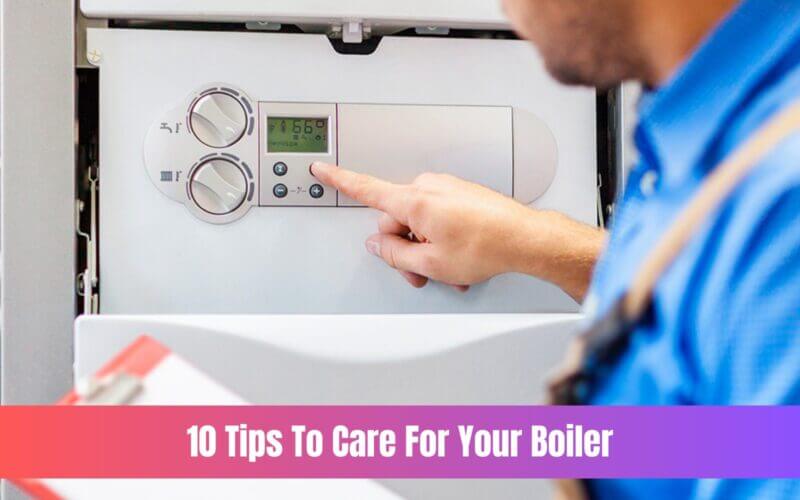Page Index
Your boiler is the heart of your home’s heating system, providing warmth and hot water during the colder months. To ensure it operates efficiently and safely, proper maintenance is essential. In this article, we’ll explore valuable tips to help you care for your boiler, extend its lifespan, and minimize issues, including keeping an eye on the pressure on your boiler.
1. Schedule Regular Servicing
One of the most crucial aspects of boiler care is regular servicing. It’s recommended to have your boiler serviced annually by a qualified technician. During a service, the technician will inspect, clean, and test various components to ensure they function correctly. This proactive approach can identify and address potential issues before they become major problems.
2. Monitor Boiler Pressure
Maintaining the proper pressure on your boiler is essential for its safe and efficient operation. Most boilers have a pressure gauge that displays the system’s pressure. The optimal pressure range typically falls between 1 to 1.5 bar, although this can vary depending on the boiler’s make and model.
To monitor the pressure on your boiler:
- Check the pressure gauge regularly, especially during the colder months when your boiler is working harder.
- If the pressure falls below 1 bar, you may need to top up the system with water. Consult your boiler’s manual for specific instructions on how to do this safely.
Avoid over-pressurizing the system, which can lead to leaks or other problems. If you need more clarification, it’s best to contact a professional.

3. Bleed Radiators
Air can accumulate in your heating system, causing radiators to become less efficient at heating your home. To address this issue, you can bleed your radiators. Bleeding involves releasing trapped air, allowing hot water to circulate freely.
Here’s how to bleed a radiator:
- Turn off your boiler and wait for it to cool down.
- Locate the radiator’s bleed valve on one side, typically at the top.
- Place a container or towel beneath the valve to catch any water.
- Use a radiator key or a flat-blade screwdriver to open the valve counterclockwise.
- Listen for a hissing sound, which indicates trapped air escaping.
- Once water flows steadily without air bubbles, close the valve clockwise.
Repeat this process for all the radiators in your home. Bleeding your radiators can help restore heating efficiency and reduce strain on your boiler.
4. Insulate Pipes
Insulating the pipes connected to your boiler can prevent heat loss and improve the system’s efficiency. This is particularly important for pipes in unheated areas, such as basements or crawl spaces. Pipe insulation is an inexpensive and effective way to conserve energy and maintain a comfortable indoor temperature.
5. Keep the Area Around Your Boiler Clear
Ensure that the area around your boiler remains clutter-free and well-ventilated. This helps prevent dust and debris from accumulating, reducing the boiler’s efficiency and potentially leading to overheating. Adequate ventilation is crucial to ensure safe combustion and proper air supply for the boiler.
6. Address Leaks Promptly
Water leaks around your boiler can indicate a problem with the system, and they should not be ignored. Leaks can cause damage to your boiler and surrounding areas, as well as pose safety hazards. If you notice any leaks, whether from pipes, valves, or the boiler itself, it’s essential to address them promptly.
7. Use a Carbon Monoxide Detector
Boilers that burn fuel can produce carbon monoxide (CO), a colorless, odorless gas that can be deadly if inhaled in large quantities. To ensure your safety, install a carbon monoxide detector in your home, especially in areas near your boiler. Regularly check the detector’s batteries and replace them as needed.
8. Follow the Manufacturer’s Guidelines
Always follow the manufacturer’s guidelines for your specific boiler model. These guidelines include recommended maintenance procedures, safety precautions, and troubleshooting tips. Adhering to these instructions can help you care for your boiler effectively and avoid any actions that may void the warranty.
9. Avoid DIY Repairs
Boiler systems can be complex, and attempting DIY repairs without the necessary knowledge and experience can lead to further problems or safety risks. If you encounter issues beyond basic maintenance, contacting a qualified heating engineer or technician is best to diagnose and repair the problem correctly.
10. Plan for Boiler Replacement
Even with proper care, boilers have a finite lifespan. As your boiler ages, its efficiency may decrease, and repair costs can rise. It’s wise to plan for boiler replacement when your current unit ends its useful life. Investing in a new, more energy-efficient boiler can lead to long-term savings on your energy bills.
Conclusion:
Caring for your boiler is essential to ensure it operates efficiently, safely, and reliably. Regular servicing, monitoring boiler pressure, and addressing maintenance tasks like bleeding radiators and insulating pipes can extend your boiler’s lifespan and reduce energy consumption. Consult your boiler’s manual for specific guidelines and seek professional assistance for complex issues. By following these tips, you can enjoy a warm and comfortable home while optimizing energy efficiency and minimizing costs.













